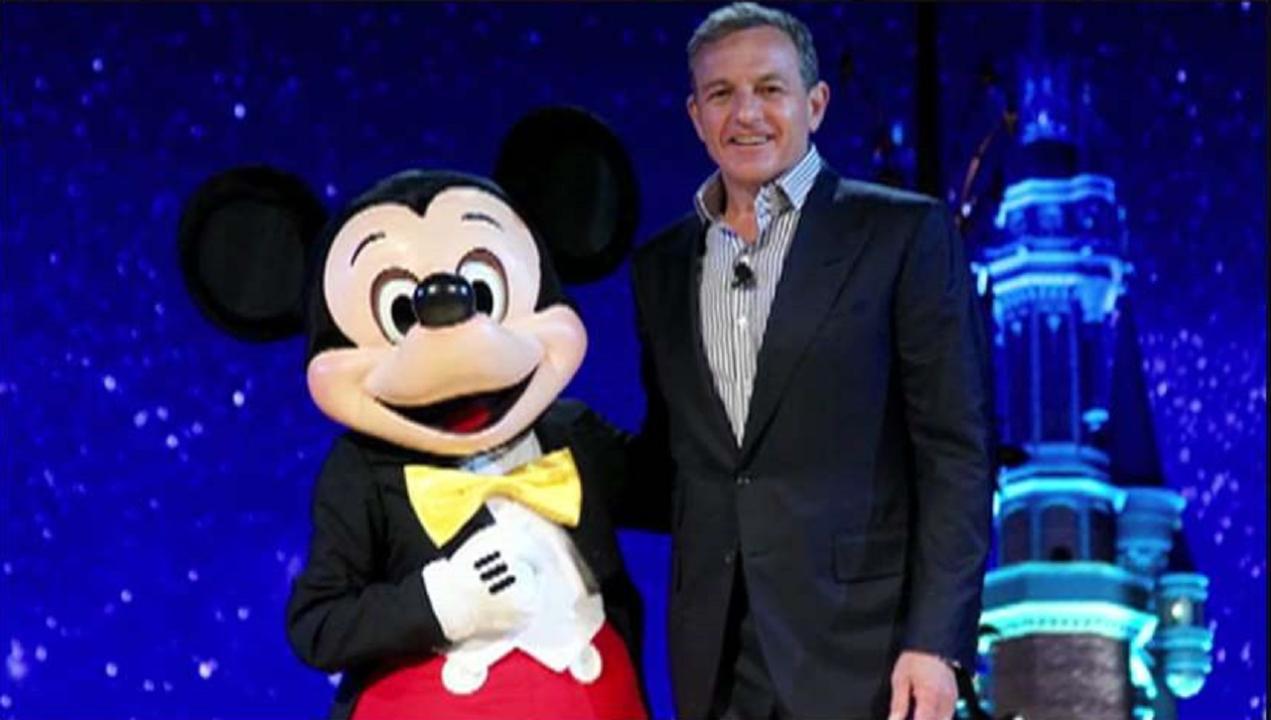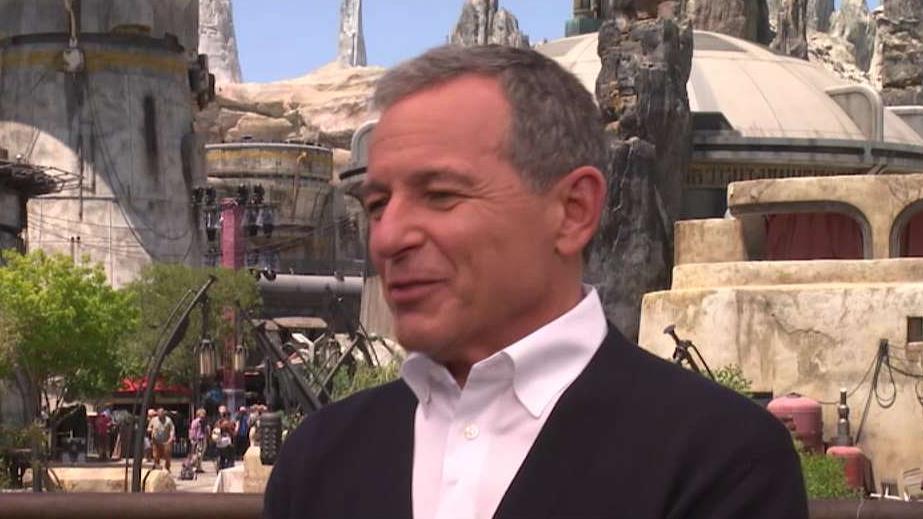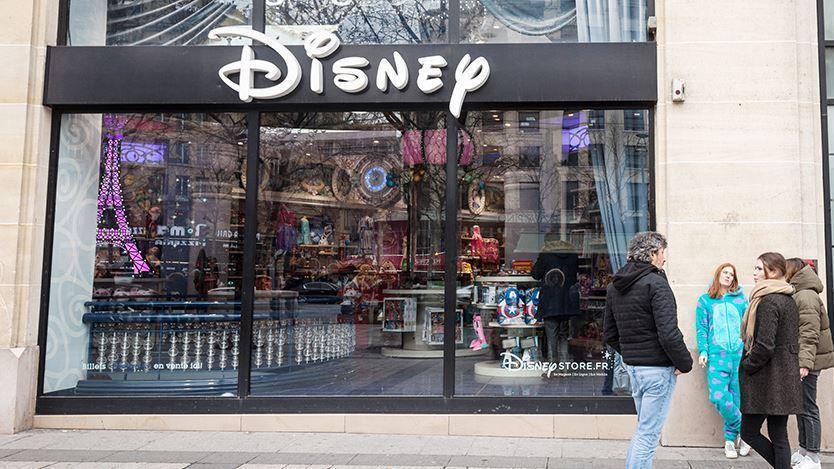Bob Iger's Disney legacy
Bob Iger was the consummate entrepreneurial CEO
Robert Iger’s announcement this week that he would be stepping down as CEO of Disney echoed the feeling we experience when rare sports legends like Mariano Rivera, Lou Gehrig, or, yes, Kobe Bryant, call it a career after wearing only one uniform. For Iger, that uniform says Disney.
The median tenure of Fortune 500 CEOs in 2017 was five years. Iger’s tenure boasts over 15 years at the helm and over 45 years at the company, including his time at ABC.
DISNEYLAND UNVEILS NEW PARADE AFTER TWO YEAR PLAN
Iger's longevity and influence at Disney resembles the experience of founder CEOs, companies like Microsoft, Apple, Amazon, and Google come to mind. Like those entrepreneurial icons, Iger turned Disney into a powerhouse that had the look and feel of a Silicon Valley unicorn even though Mickey Mouse recently celebrated his 90th birthday.
After reading his recent book chronicling his remarkable career at Disney, “The Ride of a Lifetime: Lessons Learned from 15 Years as CEO of the Walt Disney Company,” it is clear that his run will compare favorably with other, non-founder CEO giants.
Iger bet the farm, but it is exactly what you expect from an entrepreneurial CEO who knows there is no safety, particularly in disruptive markets, in staying put.
Alfred Sloan of General Motors comes to mind, who worked at GM for nearly 40 years, 23 as CEO (1923-1946) and arguably invented the modern complex corporation and corporate strategy. Here is an example of their similar views on the peculiar role of an effective CEO:
“The spirit of venture is lost in the inertia of the mind against change. When such influences develop, growth may be arrested or a decline may set in, caused by the failure to recognize advancing technology or altered consumer needs, or perhaps by competition that is more virile and aggressive.” -- Alfred Sloan in “My Years with General Motors.”
This quote could have just as easily come from the mouth of Iger who recognized the disruptions taking place all around his business and refused to observe like a spectator. He took perceived huge risks that in retrospect make perfect sense.
Iger was the consummate entrepreneurial CEO unafraid to take calculated risks to respond in ways that would have made Sloan proud.
Iger purchased Pixar from Apple in 2006 for $7.4 billion. In 2009, he led the acquisition of Marvel Entertainment for $4 billion. In 2012, Disney purchased Lucas Films for $4 billion. And, in 2019, Disney shook Hollywood by purchasing the film and TV assets of 21st Century Fox for over $71 billion, making Disney the second-largest entertainment company in the world as measured by market capitalization, only behind AT&T.
This acquisition splurge, in retrospect, now makes even more sense given the current Disney strategy authored by Iger and his team to take their media assets directly to the public in the form of Disney+.
About 5.5 million American consumers cut the cord on their cable companies in 2019, according to public filings, streaming their entertainment and information directly. Disney can now compete against Netflix and grow, independent of the cable giants.
Iger bet the farm, but it is exactly what you expect from an entrepreneurial CEO who knows there is no safety, particularly in disruptive markets, in staying put.
Disney will turn over the reins of power to Bob Chapek, another Disney lifer. It will be up to Chapek to execute on the strategic moves of his predecessor, which will be no easy task.
DISNEY CEO BOB CHAPEK, BOB IGER'S SUCCESSOR: 5 THINGS TO KNOW
Disney is better positioned to compete in this disruptive environment because of Iger’s leadership. But corporate and economic history tells us the future will be different from the present in ways difficult to imagine today.
Iger’s greatest success may have been in his ability to recognize the early signs of disruptive forces and then figure out a strategy to succeed.
GET FOX BUSINESS ON THE GO BY CLICKING HERE
If this was all Iger’s tenure as CEO is remembered for, it insufficiently captures the totality of his impact on Disney and perhaps corporate leadership more broadly. Corporate leaders are also moral leaders.
No leader can always express their actions in ways consistent with their principles. Companies operate in competitive markets that, by their very nature, are rough, bruising and not for the faint of heart. But Iger appears to have managed in ways that were largely consistent with his moral compass. In Iger’s memoir he lays out his ten guiding principles:
- Optimism
- Courage
- Focus
- Decisiveness
- Curiosity
- Fairness
- Thoughtfulness
- Authenticity
- Relentless Pursuit of Perfection
- Integrity
More than the acquisitions, more than the growth in stock price, more than the growth in Disney employment around the globe, more than the growth in theme parks, more than power, more than the personal wealth, it will be these principles of Iger’s leadership that should be what current and future CEOs (and public leaders) should pattern themselves after.
It would not surprise me if Iger, in the next phase of his life, follows in the footsteps of Carnegie, Rockefeller, Gates, Buffet and Sloan in spending the wealth he accumulated at Disney in ways that make all of us better off. His principles require that.
Fred McKinney, Ph.D. is the Carlton Highsmith Chair for Innovation and Entrepreneurship and Director of the People’s United Center for Innovation and Entrepreneurship at the Quinnipiac University School of Business.






















